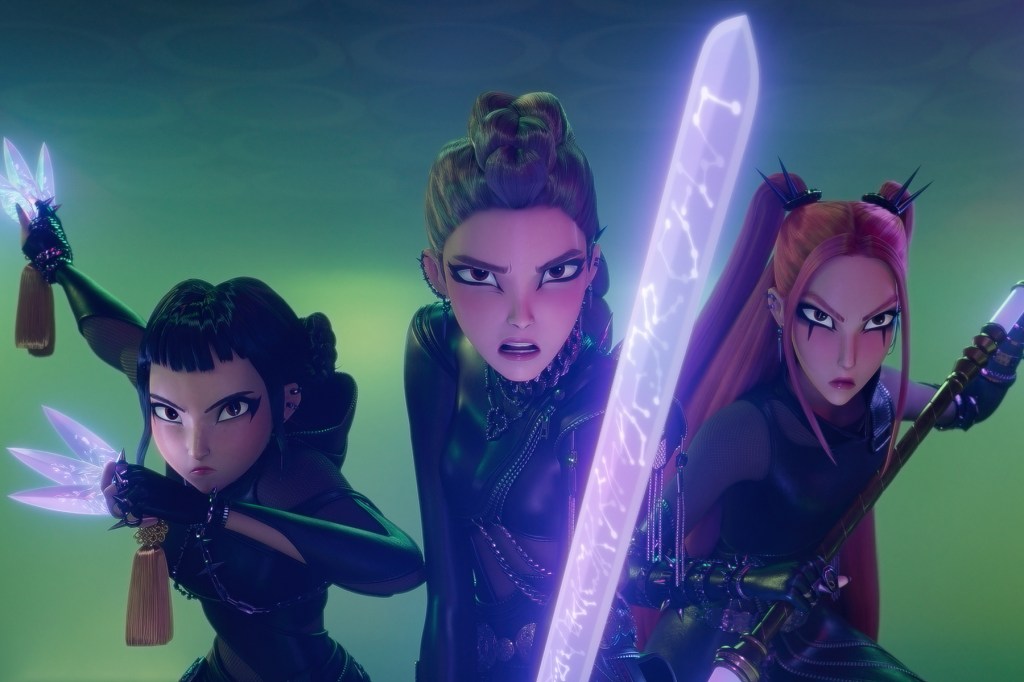Netflix's surprising monster hit, KPop Demon Hunters, has taken the world by storm, breaking records at an unprecedented pace. With 236 million views, it has become Netflix's most-watched movie ever, dethroning the previous record-holder, Red Notice. The film's success is not just limited to streaming numbers; its soundtrack boasts four songs in the Billboard Hot 100's top 10 simultaneously, a feat unseen in the chart's history. Songs like "Golden," "Your Idol," "Soda Pop," and "How It's Done" have captivated audiences worldwide.
The film, directed by Maggie Kang and Chris Appelhans, follows the fictional girl group, Huntr/X, as they navigate the dual worlds of pop stardom and demon hunting. The soundtrack's success has been a pleasant surprise, propelling KPop Demon Hunters to the top of the charts and cementing its place as a cultural phenomenon. The film's sing-along theatrical release saw significant box office success, further solidifying its popularity.
Netflix and Sony are already in discussions for a sequel, highlighting the film's potential for becoming a lucrative franchise. However, while Netflix reaps the rewards of this unexpected hit, Sony Pictures Animation, the creator of KPop Demon Hunters, finds itself in a bittersweet situation. Despite investing around $100 million in production, Sony is expected to see only a fraction of the profits due to a distribution deal struck with Netflix.
The deal, designed to mitigate risks during the pandemic era, sees Netflix retaining all rights to the property and capping Sony's profit participation. What seemed like a sensible agreement at the time now appears to have cost Sony a potential billion-dollar franchise. The success of KPop Demon Hunters has underscored Sony's need to cultivate original intellectual property from the outset, a lesson they've seemingly learned the hard way.
Netflix's acquisition of KPop Demon Hunters presents not only a financial windfall but also underscores the value of owning successful intellectual property in the entertainment industry. The film's rapid ascent to the top of the charts and its multi-faceted success across various platforms highlight its potential for long-term monetization. In contrast, Sony's missed opportunity serves as a cautionary tale in an industry increasingly driven by franchise potential.
The film's soundtrack, featuring hits like "Golden," "Your Idol," "Soda Pop," and "How It's Done," has not only captivated audiences but also made history by achieving four simultaneous top 10 hits on the Billboard Hot 100. The soundtrack's success has brought new life to the film and opened up additional revenue streams for Netflix.
As discussions for a sequel gain momentum, the dynamics between Netflix and Sony underscore the delicate balance of creative success and financial gain in the entertainment industry. While Netflix stands to benefit from KPop Demon Hunters' continued success, Sony may need to reevaluate its approach to cultivating original intellectual property.
In conclusion, the unexpected success of KPop Demon Hunters serves as a reminder of the ever-evolving landscape of the entertainment industry. As streaming platforms like Netflix continue to dominate, owning successful intellectual property remains a key driver of long-term value. The lessons learned from KPop Demon Hunters will undoubtedly shape the future strategies of both Netflix and Sony as they navigate the complex terrain of content creation and distribution.


